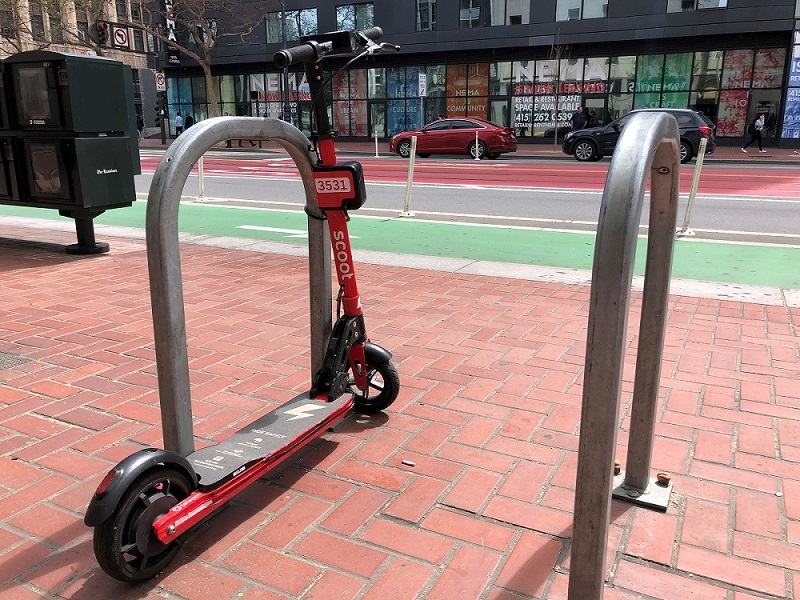
Yesterday, we reached the midpoint of our Powered Scooter Share Pilot. At the beginning of the Pilot, the SFMTA committed to a robust evaluation at the midpoint and today we’d like to share the results.
Scoot and Skip are the two permitted scooter share operators, beginning service in October 2018. Under the permits issued to these two companies, the SFMTA allowed each to operate 625 scooters for the first six months of the Pilot, with the potential to add an additional 625 after six months, pending Agency review.
Mid-way through the Pilot, the evaluation shows that permittees are generally performing well and complying with the terms and conditions set forth by the SFMTA. The evaluation also identifies several areas for improvement.
The evaluation covers five primary topic areas, based on the Pilot permit terms and conditions as well as San Francisco’s Guiding Principles for Emerging Mobility:
1. Progress of the Pilot
2. Safety and Accessibility
3. Complaints and Citations
4. Inclusive and Equitable Service
5. Ridership and Demand
Based on this evaluation, the SFMTA is in the process of granting a modified permit, which will allow the permittees to operate up to 1,250 scooters each for the remainder of the 12-month pilot period on the basis that certain conditions are met. These conditions are detailed in a separate Policy Directive.
The SFMTA will complete its full evaluation of the Pilot in fall 2019, including recommendations for if and how to permanently permit the operation of electric shared scooters in San Francisco.
Key Findings
-
Complaints about sidewalk riding and improper parking were significantly reduced under the Pilot.
-
While State law no longer requires scooter riders over the age of 18 to wear helmets, helmet use should nonetheless be encouraged to prevent injuries.
-
The lock-to design addresses major issues with sidewalk clearance.
-
More robust equity engagement is needed to ensure powered scooter share programs effectively serve historically disadvantaged communities, especially low-income individuals.
-
Demand for powered shared scooters is high.
-
Powered scooter share systems can serve the public interest when properly regulated.
Recommendations and Next Steps
-
Continue the Pilot Program for further evaluation and expand the number of permitted scooters to 1,250 per permittee, contingent upon meeting the criteria detailed in the Policy Directive.
-
Promote safety as a top priority.
-
Ensure continued progress in areas that need improvement, particularly equity.
-
Continue permit compliance monitoring and complete Pilot evaluation.